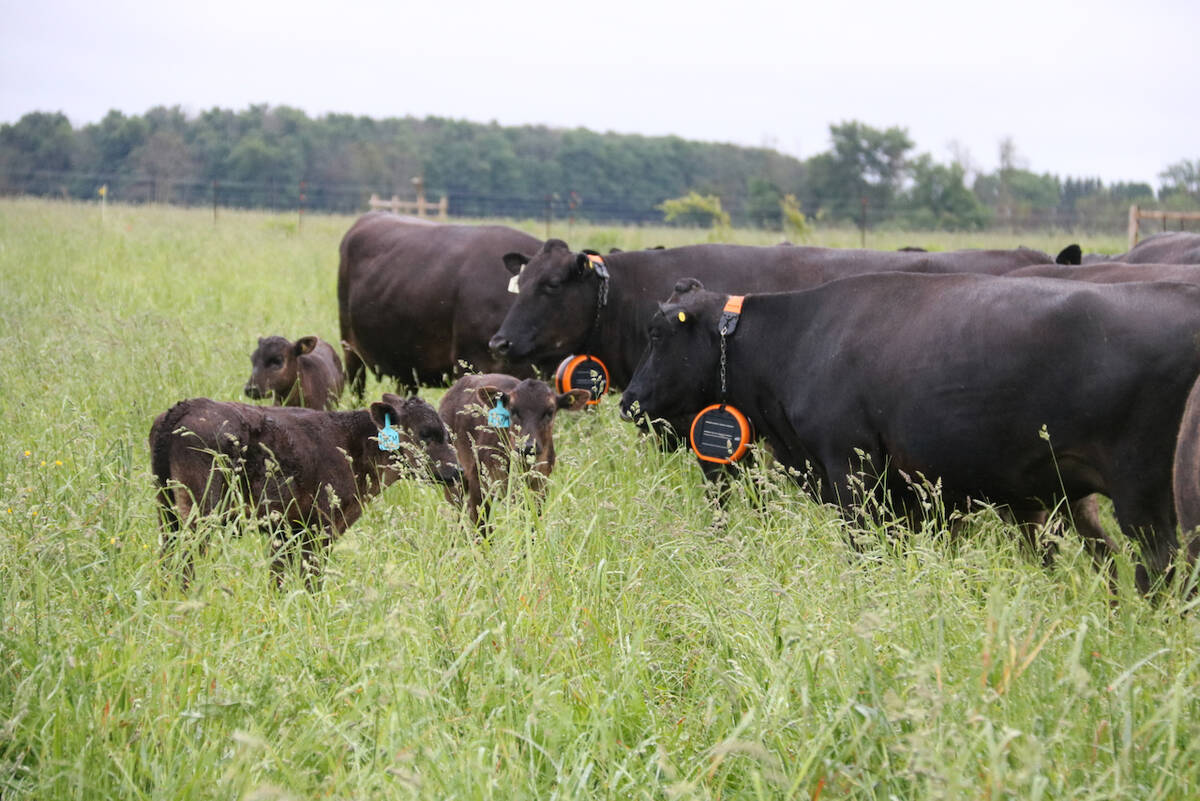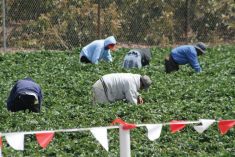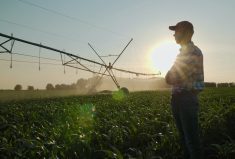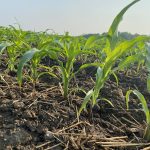Farmers could soon see some relief from high diesel fuel prices but they may not like how it happens, says a Calgary energy analyst.
Canada is shortly going to feel the effects of last year’s ground-breaking interest rate hikes, complete with slowdowns in the economy, the GDP and consumer demand, said Vijay Muralidharan.
With that will come a diminished appetite for diesel.
Read Also

How soil fertility management can boost pasture yield by 43 per cent
Learn how soil testing and targeted fertilization can increase pasture biomass by 43%. Expert tips on N, P, and K management for beef cattle producers.
“These high (diesel prices) will be hit by a slowing economy that’s to come in the summer or the fall months,” said Muralidharan, adding there’s already been a slight rebound in global inventory levels that have been at historic lows in recent months.
“I’ve noticed over the last few weeks that the inventory level has improved. It’s much better than when we went into the winter season. This can give some sort of comfort.”
While lower prices are welcome, Scott Keller doesn’t think the change is worth tanking the economy.
“A break in diesel prices would be fantastic. At the expense of a downturn in the economy? I don’t know if that’s really what we want,” said the Camrose area farmer.
“If people are buying less to save money because they’re worried about getting bills paid, that causes a recession. I don’t know if the net benefit is better for farmers.
“Even if our diesel price drops, say, five bucks an acre but I lose money on commodities, I’m probably losing when that happens.”
The cumulative effect of diesel plant shutdowns or plant conversions to gasoline, plus the influence of U.S. prices, created a perfect storm for diesel and drove prices at the pump into the $2 per litre range.
But the single biggest factor has been Russia’s war in Ukraine, said Muralidharan.
“Because of the war in Ukraine, crude prices went to astronomical levels. The price of products jumped simply because crude prices jumped. On any given day, crude drives 55 to 69 per cent of diesel and gasoline pricing.”
A domino effect occurred during the summer.
“Natural gas prices went to pretty high levels,” said Muralidharan. “If gas prices go up, the alternative is diesel or heating oil.
“Because Europe and South America couldn’t afford natural gas, they drew down on high diesel supply from the U.S. Gulf Coast, which has the highest inventory of diesel.”
That set the stage for pricing pain.
“Since summer, the diesel inventory level is the lowest we’ve seen since 2000 (and) the second-lowest point historically speaking, which is quite alarming going into winter if we have a cold season. What if a refinery goes out of commission? That would mean a draw-down on inventory, but if you have low inventories, what do you do?”
Although the situation is improving, farmers, truckers and other major users of diesel aren’t out of the woods yet, said Muralidharan, noting maintenance shut-downs of refineries will begin in spring and Vladimir Putin could cause even more economic chaos.
His advice to farmers is to watch for signs of a slowing economy.
“If you start looking at the economic data, you see consumption is falling. People aren’t spending as much money,” he said. “Even demand for and purchases of housing have come down significantly from a year ago or even two years ago. That’s the first signal that the economy is slowing.”
Producers may be shielded from the worst effects of a poor economy simply because “people need to consume food.”
Keller is skeptical of that claim, noting farmers are just as vulnerable in a soft economy as anybody else.
“Food’s expensive,” he said. “If you’re having trouble paying your bills, why wouldn’t you try to save 10 or 20 per cent on your food bill? I would think people are going to do that.
“They say the food banks have never had more people needing their services, so at a certain point people will eat cheaper food if they’re forced to. We can’t just take it for granted.”
Keller is taking steps to stretch his diesel fuel budget.
He keeps track of prices through his retailer, has hired a custom grain hauler and is looking at increasing his storage capacity. Minimum tillage also helps reduce fuel costs.
“Definitely the biggest fear is a shortage, because then we’re not doing anything,” he said. “I’ve put more thought into increasing my storage for diesel just because I can only store about 20 to 25 per cent of my annual needs.
“I thought maybe it would be better to double that because then if there was a shortage I might not be affected by it.”
Otherwise, Keller said he doesn’t give much thought to his diesel costs. Even at current prices, he doesn’t consider it a particularly onerous line item.
“At the end of the day, diesel isn’t a massive input cost,” he said. “It’s a necessity. We have to have it, but it doesn’t get a whole lot of thought from a management standpoint. There’s other places to focus time and energy on.”
Three Hills producer and agronomist Steve Larocque expressed similar sentiments.
“We have measured fuel use at seeding and harvest and worked it out per acre,” said the owner of Beyond Agronomy.
“For me, I probably use four to five litres per acre of fuel on seeding. I would use maybe a litre (per acre) on spraying and then five to six litres per acre for harvest. Other farmers could be a lot more efficient than I am.”
At about 15 litres per acre, that’s $20 to $30 per acre.
“Diesel’s a big line item but not the biggest,” said Larocque. “Fertilizer’s the big one because you’re talking $150 to $250 an acre in expense relative to $20 to $30 per acre.
“But (diesel is) going to chew up some margin for sure. It’s not to be ignored.”
















